If you are wondering how to use eggshells in the garden, you will be happy to find out it is easier than you may think! While putting eggshells in the compost bin is great, you should be using them as fertilizer in your garden beds for a free and natural soil amendment!
Whether you have backyard chickens and a surplus of eggs, or you use a lot of eggs while cooking, don’t get rid of these organic garden amendments!
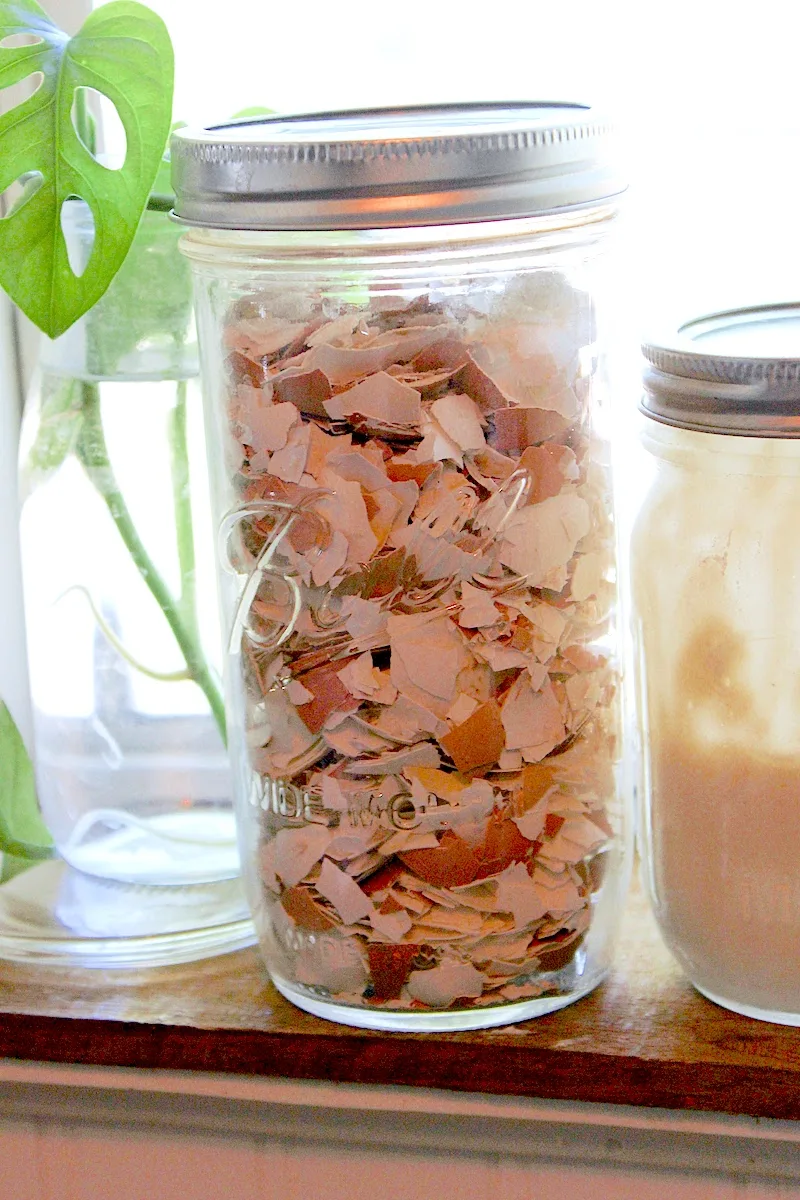
Eggshells are made up of calcium carbonate, a substance that is also found in agricultural lime which is used to adjust acidic soil. Lime raises a soil pH level and helps to neutralize the soil acidity.
5 Benefits to Adding Eggshells in the Garden
Using eggshells in the garden has many benefits, including:
- Eggshells help deter pests: The sharp dangerous edges of crushed eggshells in your garden will keep snails and slugs away. The smell of egg is also a good deer repellent.
- Eggshells reduce soil acidity: Eggshells can moderate the soil acidity due to the calcium content and create a more alkaline soil. If you want to find out if your soil needs amendments, you can test the soil yourself with a simple kit.
- Eggshells provide benefits for backyard birds: Birds are wonderful to have in your backyard for birdwatching. They are also very important pollinators and they eat garden pests! Birds will eat small amounts of eggshells in the garden if they need extra calcium.
- Eggshells can be used as mulch: If you use a thick layer of them around the base of the plant, they act like a mulch to deter weeds. The shells can also help retain moisture in the soil.
- Eggshells help aerate and improve drainage: Working crushed eggshells into your soil adds pockets of air that can improve drainage and allow for better airflow in compacted soil.
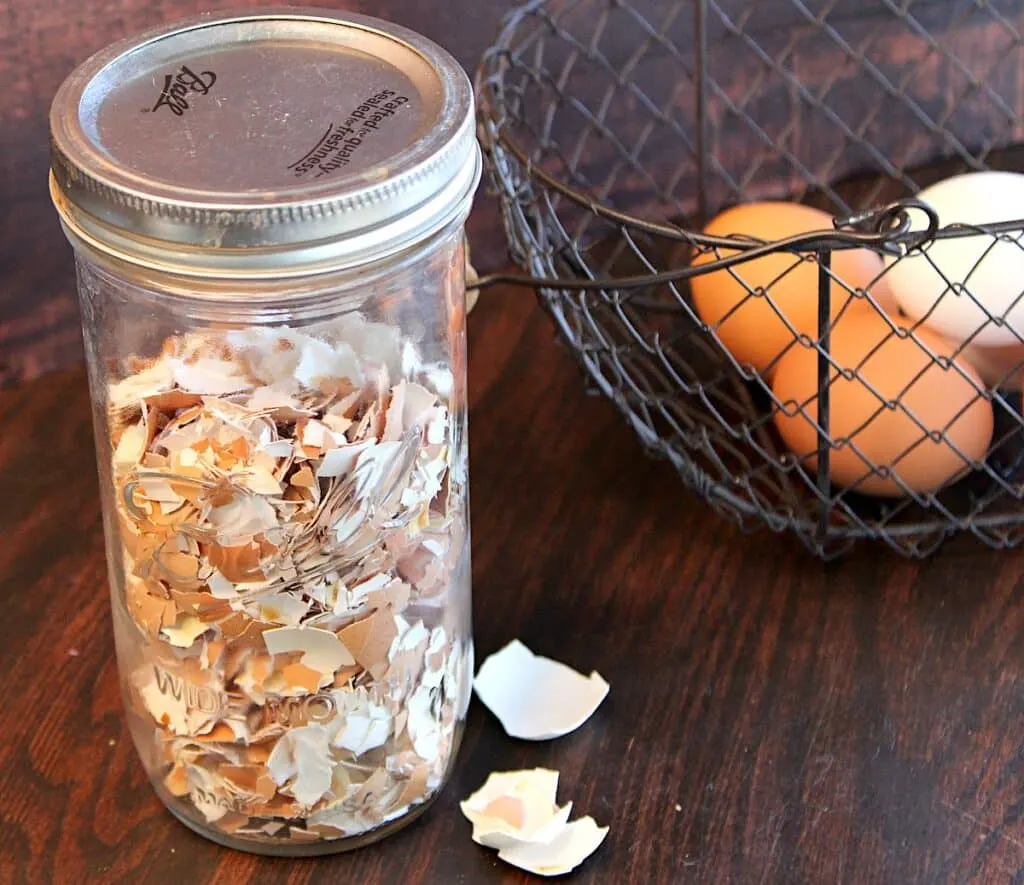
Are Eggshells Good for a Garden?
While eggshells in the garden might seem like a great organic amendment, you don’t want to add them everywhere. Not every plant will appreciate the extra calcium and minerals.
Use eggshells as a fertilizer in the garden around these types of plants:
- Apples
- Strawberries
- Lettuce
- Cucumbers
- Peppers
- Spinach
- Tomatoes
- Eggplants
- Roses
- Chrysanthemums
Do not use eggshells as a fertilizer with these plants;
- Cabbage
- Beans
- Spinach
- Geraniums
- Violets
- Azaleas
How to Use Eggshells in the Garden
Adding crushed and baked eggshells to your garden is simple and easy. Mix in with the soil, or sprinkle on top of the soil to naturally decompose.
Calciums from the shells is available to the plants quickly after adding the shells into the soil. However, the actual eggshell itself may not decompose for quite a while. Eggshells can take months or years to fully break down.
Larger pieces of eggshell can potentially damage root growth, so be sure that any eggshells you are going to work into the soil are finely crushed or ground into a powder.
How to Prepare Eggshells for the Garden
You will need to bake eggshells to use them in the garden. Baking the shells disinfects them and also dried them out so that they can be crushed more easily.
Put eggshells in a contain on the counter as you collect them throughout the week. When you have enough egg shells to fill up a baking sheet, then follow these instructions for baking eggshells for the garden.
Step 1
Preheat the oven to 350 degrees.
Place your eggshells in a strainer and then rinse them well in the sink.
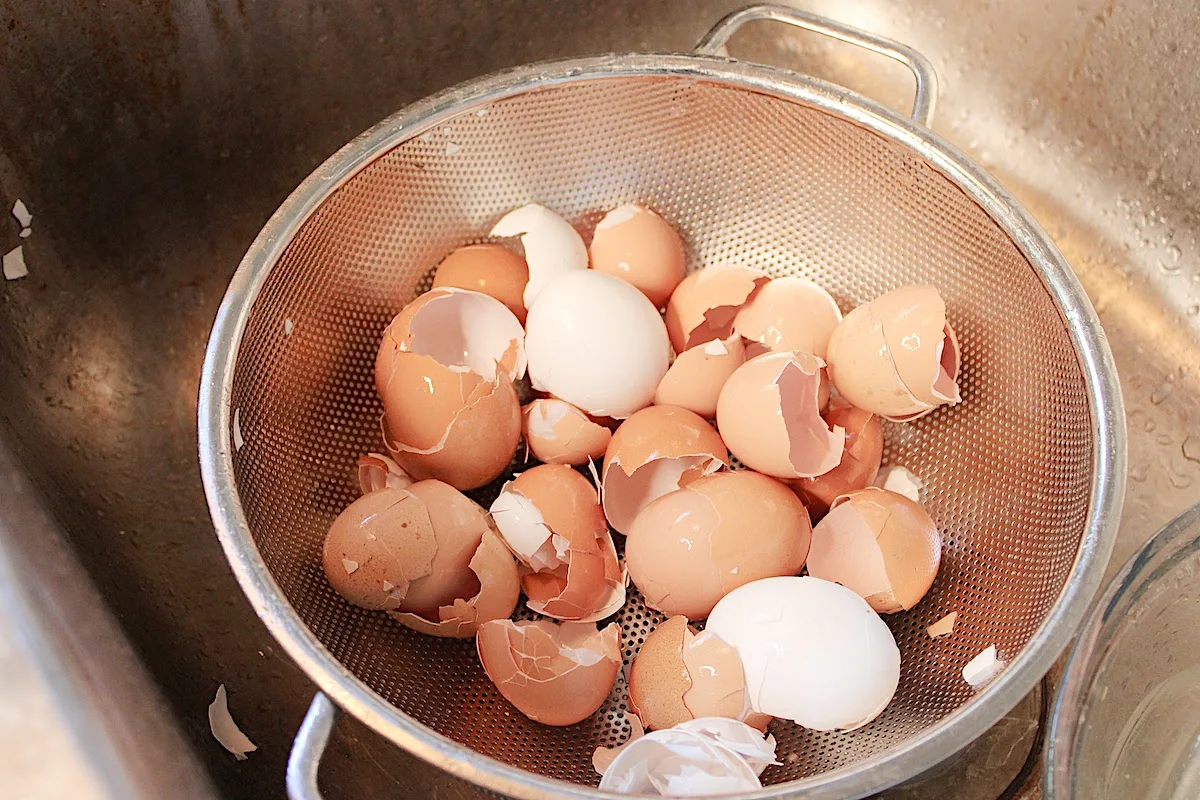
Allow the shells to drain.
Step 2
Spread the eggshells out on a baking sheet. Do not oil or grease the baking sheet.
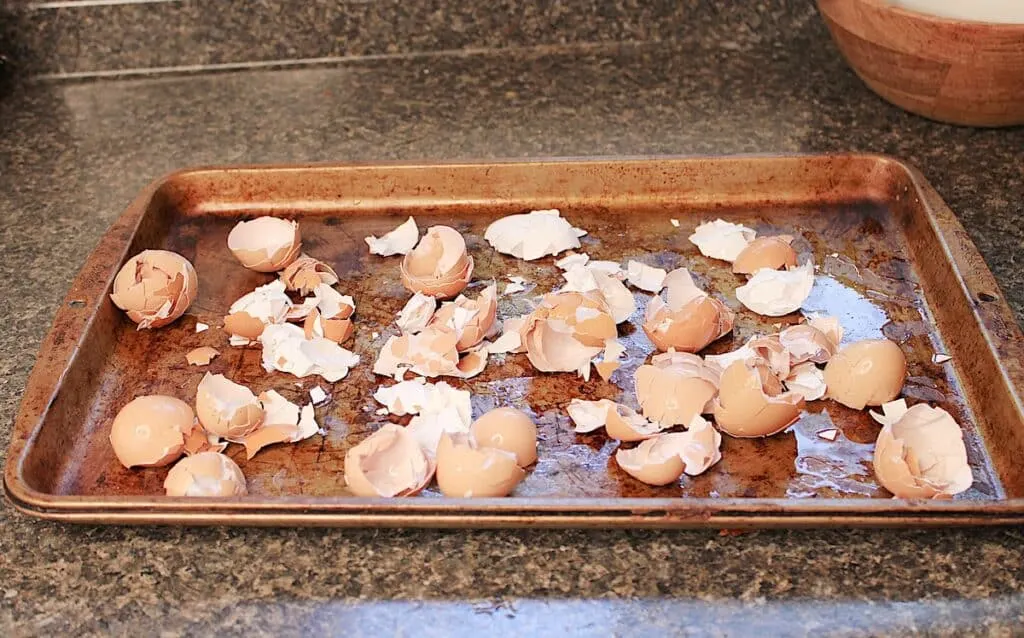
Step 3
Bake for 10 minutes. Remove from the oven and allow to cool.
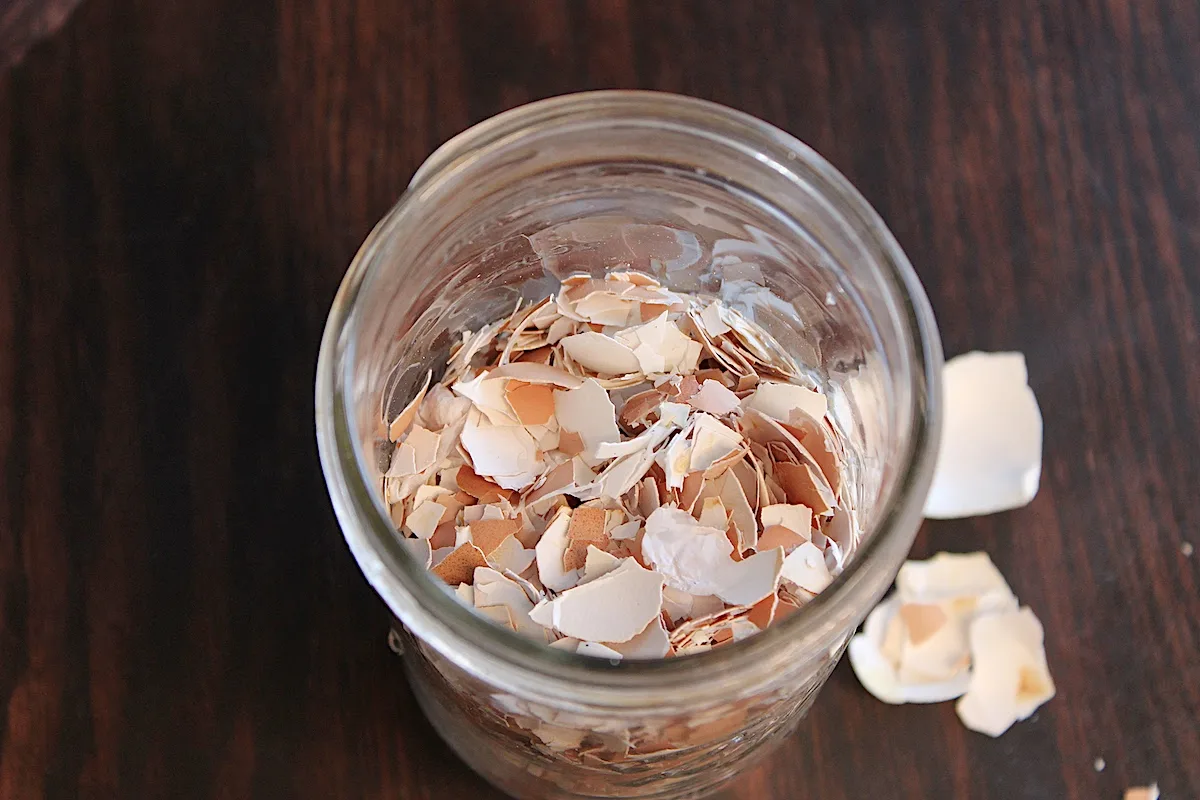
Once cool to the touch, use the back of a spoon or the bottom of a cup to crush the baked eggshells for the garden into smaller pieces. Alternatively, you could grind them into more of a powder form by using a blender, coffee grinder or mortar and pestle.
Store in a mason jar with a lid or any lidded container until ready to use.
Save this idea for later by pinning it to Pinterest!
Want more inexpensive and non-toxic garden tips? Check out these ideas next:
- How to Use Vinegar to Kill Weeds
- Using Newspaper to Prevent Weeds
- DIY Homemade Weed Killer
- Easy Organic Gardening Hacks